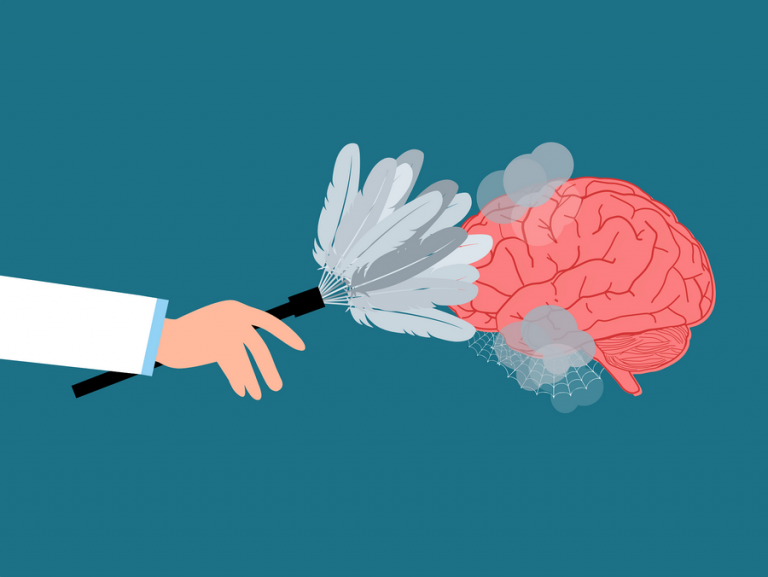What is Brain Fog? Symptoms, Causes, and Daily Solution.
Ever found yourself halfway through the workday, staring at your screen, struggling to recall why you opened that spreadsheet in the first place? You’re not alone. Brain fog is becoming an all-too-common experience for office workers, showing up as forgetfulness, sluggish thinking, or simply feeling “off.”
In this article, we’ll break down what brain fog is, why it’s so common for office employees, and—most importantly—how to start clearing the haze with a few practical habits.
What is Brain Fog?

Brain fog isn’t a medical diagnosis, but it’s a real and frustrating experience that many people face in daily life. Imagine sitting at your desk, struggling to concentrate, or blanking out on words during a conversation—even after a good night’s sleep. That feeling of mental cloudiness, where your mind feels slow or “offline,” is what’s commonly known as brain fog.
Instead of being a single condition, brain fog is actually a group of cognitive symptoms that can include:
Trouble focusing or staying on task
Forgetfulness or missing everyday details
Slow thinking or reaction times
Feeling mentally drained or easily fatigued
These symptoms can come and go, often triggered by stress, lack of sleep, poor nutrition, or even information overload. For most people, brain fog is a sign that something in your lifestyle or health needs attention—not a permanent state.
If you’ve ever felt mentally “off,” you’re definitely not alone. The good news is, brain fog is usually manageable once you know what’s causing it and take a few simple steps to clear the haze.
Why Does Brain Fog Happen? An Office Worker’s Perspective
If you spend your days working in an office, you know how important it is to stay clear-headed—whether you’re answering emails, sitting through meetings, or juggling multiple tasks. But these days, even the most organized employees run into “brain fog”—those times when your mind feels slow, you can’t concentrate, and simple tasks suddenly seem harder than they should.
From my own daily routine and conversations with other office workers, I’ve realized brain fog is more than just a result of stress or a bad night’s sleep. Two modern habits—endlessly scrolling through short videos on our phones and not moving enough throughout the day—are quickly becoming major causes for many of us. Let’s take a closer look at what’s really triggering this mental haze, and how our everyday routines might be making it worse.

Classic Causes of Brain Fog
First, it’s important to understand the medical side. Brain fog is often linked to:
Chronic stress: Prolonged stress can trigger inflammation in the brain and body, sapping your mental energy and making it hard to concentrat.
Poor sleep: Not getting enough quality sleep is a direct hit to focus, memory, and decision-making.
Hormonal changes: Shifts in hormones (like during pregnancy or menopause) can temporarily cloud thinking.
Blood sugar swings: When your blood sugar is too low or swings wildly, your mind can feel sluggish or jittery.
Certain medications: Some prescriptions, especially for pain or sleep, can slow cognitive function.
Underlying health conditions: Issues like thyroid disorders, depression, chronic fatigue, or autoimmune diseases often include brain fog as a symptom.
But while these are crucial, two everyday habits deserve special attention in today’s world.
1. Scrolling Through Short Videos: The Modern Fog Machine
Let’s be honest: scrolling through TikTok, Instagram Reels, or YouTube Shorts is addictive. These rapid-fire clips are designed to keep our attention—but in reality, they can leave our brains overloaded and exhausted. When you consume a flood of fragmented, high-stimulation content, your mind doesn’t get the downtime it needs to process information or recover focus.
What I’ve noticed (and science is starting to confirm) is that binge-watching short videos trains our brains for distraction. It becomes harder to stick with deep work, read a book, or even finish a thought without checking your phone. Over time, this can turn occasional brain fog into a chronic problem.
Personal Tip:
I started timing my social media use and giving myself “phone-free” hours in the evening. The mental clarity difference is huge—worth a try if you’re feeling foggy.
2. Lack of Exercise: Movement as Medicine
Modern work life is surprisingly sedentary, especially for those of us in office-based or engineering jobs. It’s easy to spend hours sitting in front of screens, barely moving. But regular physical activity is one of the most powerful tools for a healthy, clear mind.
Exercise boosts blood flow to the brain, reduces inflammation, and helps balance the hormones that affect mood and focus. When I skip workouts for a week, brain fog creeps in. Even a quick walk at lunchtime or some stretching in the morning can make a noticeable difference.
Personal Tip:
I set a recurring calendar reminder to stand up and move every hour—even just for two minutes. Over time, this habit pays off in clearer thinking and more stable energy.
Bottom Line
If you’re wrestling with brain fog, don’t brush it off. Start by looking at your daily habits: Are you binge-watching short videos? Not moving enough? Stressed out or sleep deprived? Small changes—like limiting screen time, moving your body, and prioritizing sleep—can add up to real improvements.
Have you struggled with brain fog too? What’s worked for you? I’d love to hear your thoughts and any strategies you’ve tried.
This post is for anyone feeling mentally “stuck” in today’s digital world. If brain fog is affecting your daily life or work, talking to a medical professional is always a good next step.

